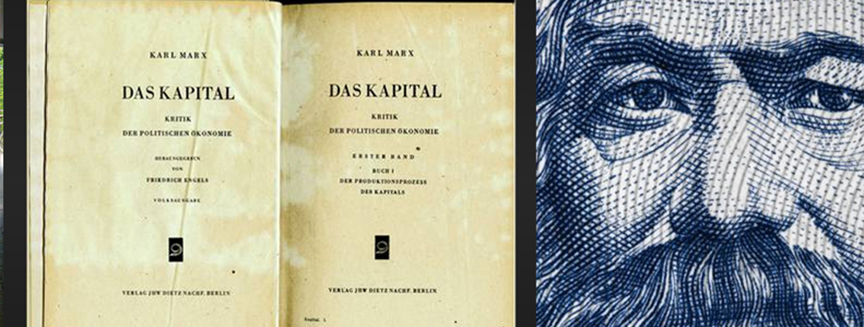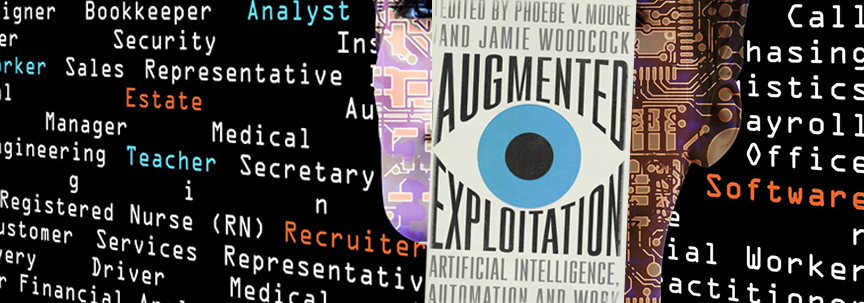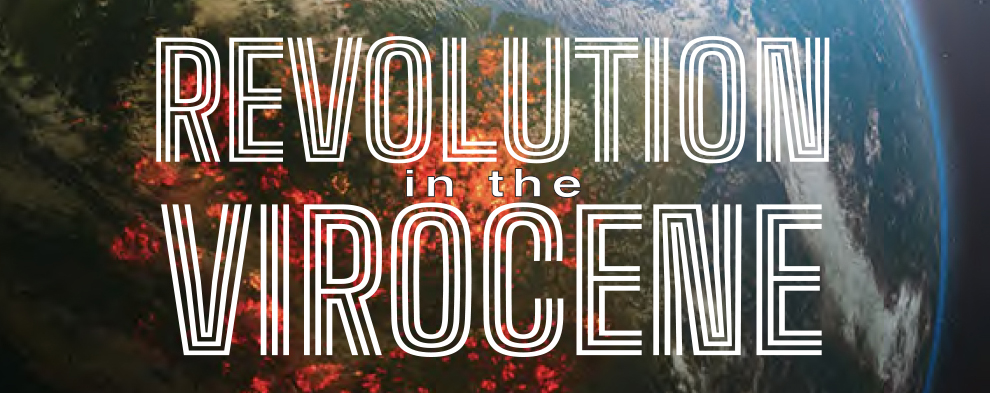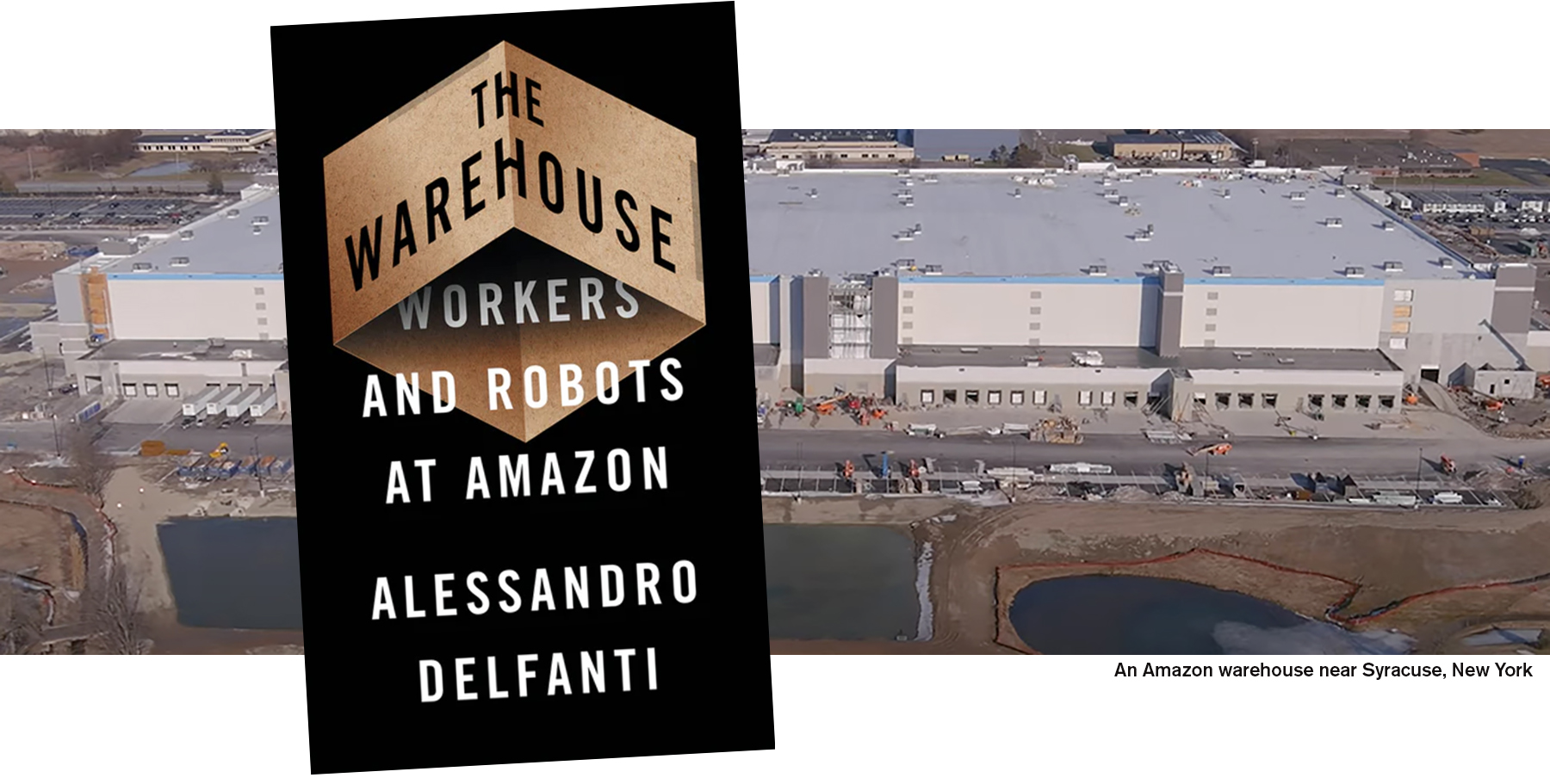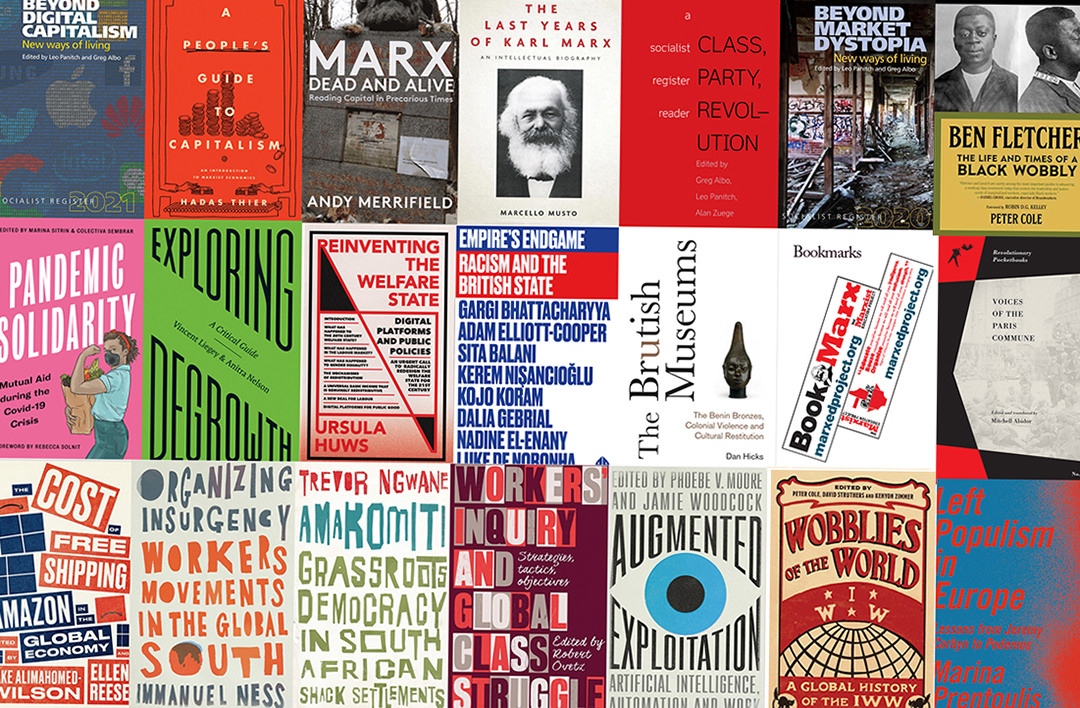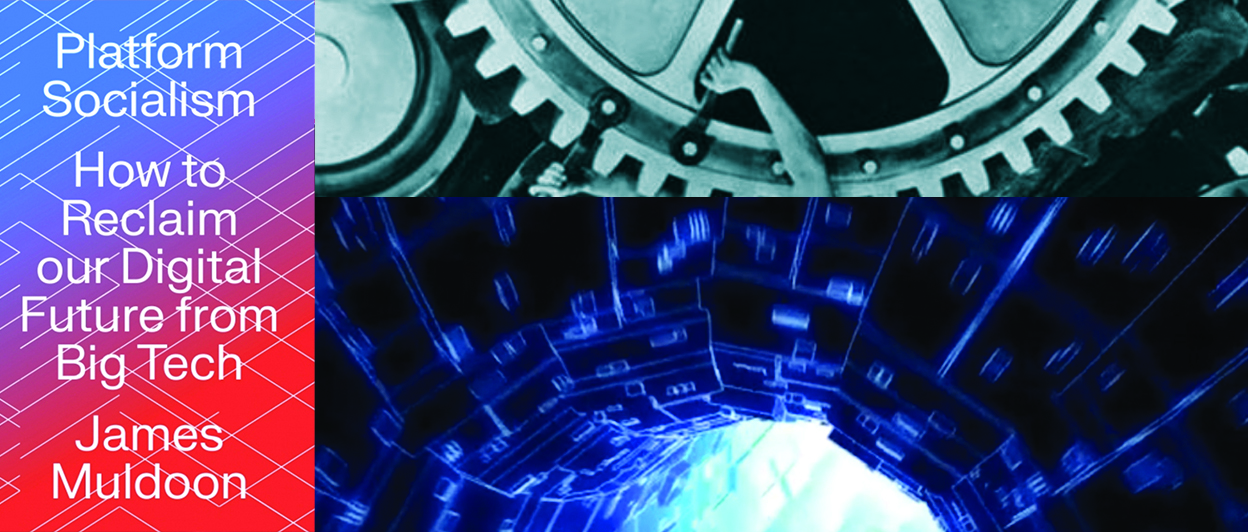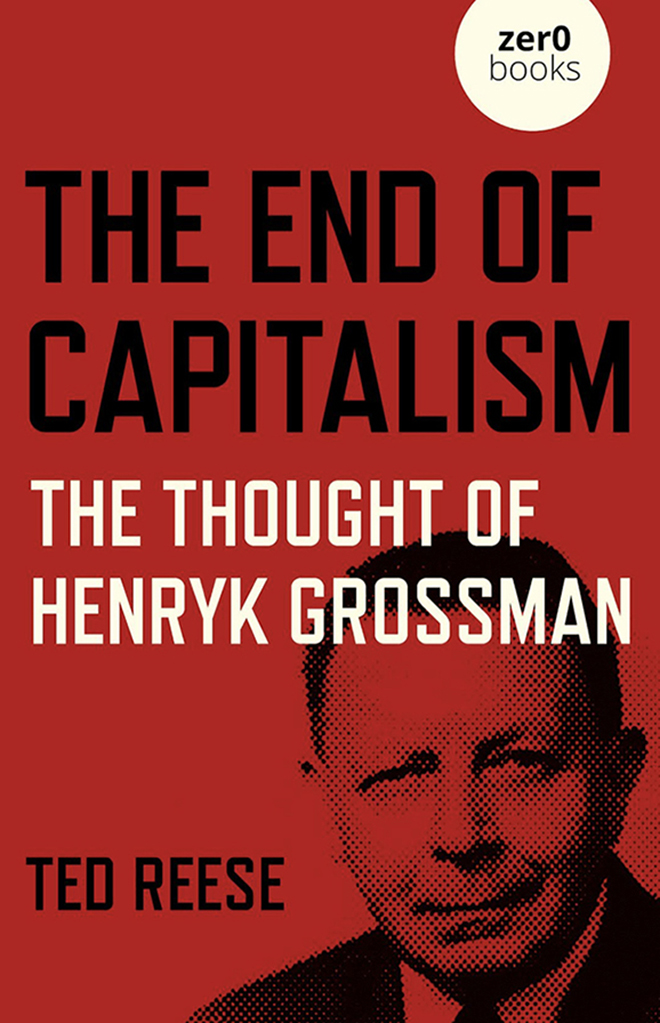automation
Capital, Volume 1, Part 3
Online: Zoom link will be provided to registered participantsChapters 16 through 25, will trace this development and reveals new dynamics and contradictions inherent to the logic of capitalist accumulation, culminating in Chapter 25, The General Law of Capitalist Accumulation. These developmental processes continue to be played out to this day and are witnessed in the immensity of wealth for a few at one pole of humanity, poverty at another, ruthless misuse and degradation of nature, and reduction of the human subject, the producing masses of real individuals, to an alienated object for capitalist exploitation.
Augmented Exploitation: Artificial Intelligence, Automation, Work and Changes in the Labor Process
Online: Zoom link will be provided to registered participantsIn the Introduction to Augmented Exploitation, co-editors Phoebe Moore and Jamie Woodcock point up two main problems with how automation and artificial intelligence are being discussed as the end of the first quarter of the 21st century draws near. Number one is the claim that Al is changing the labor process in new and unprecedented ways. But capitalists have always introduced machines in order to increase the amount of what each worker can produce in a given period of time. This is where the second problem comes in—either a certain process will be automated, or it will not—a binary that focuses on machines and not on the workers who operate them. Rather than the prospects of automation and interpretive learning replacing workers, we need rather to see that these are augmentations of the labor process. Also discussed will be two of the many vital essays from this year's Socialist Register—Beyond Digital Capitalism: New Ways of Living.
Revolution in the Virocene: Near (or Nearing) the End of Time
Online: Zoom link will be provided to registered participantsIn an instant, the mantra of there is no alternative has been replaced by whatever happens, nothing will ever be the same. The ideology that says radical transformation is unrealistic has been irrevocably discredited. The bonds and rituals of everyday life have been loosened, fragmented and disjointed. What seemed inevitable and iron clad now feels flimsy as nation states globally scramble to find solutions that don’t exist. This opens up a space for thinking, and for politics. This new situation underscores a critical need for both practical intervention and an attempt at building a convergent philosophy that anticipates the praxis of the future.
Capital, Volume II: The Process of Circulation of Capital
Online: Zoom link will be provided to registered participantsWe will begin our study of Volume II study by situating this volume in relation to the historical process of development of capitalist society which is premised on its specific social form of societal re-production, the production of capital. To do so we will study the closing sections of the Penguin edition of Volume I, specifically, Part VIII: "So-called Primitive Accumulation" and the “Appendix: Results of the Immediate Process of Production”.
Join us as we journey through this movement from the imaginary concrete to the abstract concrete to the real concrete. Come and challenge your way of thinking and understanding the world as it appears to you and begin to identify some of what needs to be overcome and done to bring about a better world.
The Warehouse: Workers and Robots at Amazon with Alessandro Delfanti
Online: Zoom link will be provided to registered participants“Delfanti has done here what more critics of Amazon should — listen carefully to the people whose work makes the corporation function. Those of us fighting for a better future than Amazon's dystopia have much to learn from this book”. — Dania Rajendra, Inaugural Director, Athena Coalition
Grundrisse: The Chapter on Money (The first two notebooks)
Online: Zoom link will be provided to registered participants“Forces of production and social relations - two different sides of the development of the social individual - appear to capital as mere means, and are merely means for it to produce on its limited foundation. In fact, however, they are the material conditions to blow this foundation sky-high...” —Karl Marx, The Grundrisse
The MEP Bookstore, Fall 2021/Winter 2022 (inclusive of shipping—US and Puerto Rico only)
Online: Zoom link will be provided to registered participantsBooks that will be used during the Winter of 2021 sessions—good for a lifetime of learning. There are Socialist Registers for 2020 and 2021, Pluto's Wildcat and FireWorks series. The any four, five or six books offers do include shipping.
Animals and Capitalism: Reading and Reflecting on ‘Porkopolis’
On-Line via Zoom You will receive Zoom link by email before the event., NYThe main reading for these sessions will be Alex Blanchette’s PORKOPOLIS: AMERICAN ANIMALITY, STANDARDIZED LIFE, AND THE FACTORY FARM, with supplemental texts on nonhuman animal work in the history of capitalism, Marxism and animal liberation, biological reproduction in animal agriculture, and related topics.
Animals and Capitalism: Reading and Reflecting on ‘Porkopolis’
On-Line via Zoom You will receive Zoom link by email before the event., NYThe main reading for these sessions will be Alex Blanchette’s PORKOPOLIS: AMERICAN ANIMALITY, STANDARDIZED LIFE, AND THE FACTORY FARM, with supplemental texts on nonhuman animal work in the history of capitalism, Marxism and animal liberation, biological reproduction in animal agriculture, and related topics.
Animals and Capitalism: Reading and Reflecting on ‘Porkopolis’
On-Line via Zoom You will receive Zoom link by email before the event., NYThe main reading for these sessions will be Alex Blanchette’s PORKOPOLIS: AMERICAN ANIMALITY, STANDARDIZED LIFE, AND THE FACTORY FARM, with supplemental texts on nonhuman animal work in the history of capitalism, Marxism and animal liberation, biological reproduction in animal agriculture, and related topics.
Animals and Capitalism: Reading and Reflecting on ‘Porkopolis’
On-Line via Zoom You will receive Zoom link by email before the event., NYThe main reading for these sessions will be Alex Blanchette’s PORKOPOLIS: AMERICAN ANIMALITY, STANDARDIZED LIFE, AND THE FACTORY FARM, with supplemental texts on nonhuman animal work in the history of capitalism, Marxism and animal liberation, biological reproduction in animal agriculture, and related topics.
Animals and Capitalism: Reading and Reflecting on ‘Porkopolis’
On-Line via Zoom You will receive Zoom link by email before the event., NYThe main reading for these sessions will be Alex Blanchette’s PORKOPOLIS: AMERICAN ANIMALITY, STANDARDIZED LIFE, AND THE FACTORY FARM, with supplemental texts on nonhuman animal work in the history of capitalism, Marxism and animal liberation, biological reproduction in animal agriculture, and related topics.
Animals and Capitalism: Reading and Reflecting on ‘Porkopolis’
On-Line via Zoom You will receive Zoom link by email before the event., NYThe main reading for these sessions will be Alex Blanchette’s PORKOPOLIS: AMERICAN ANIMALITY, STANDARDIZED LIFE, AND THE FACTORY FARM, with supplemental texts on nonhuman animal work in the history of capitalism, Marxism and animal liberation, biological reproduction in animal agriculture, and related topics.
Platform Socialism: How to Reclaim Our Digital Future from Big Tech
On-Line via Zoom You will receive Zoom link by email before the event., NYJames Muldoon shows how grassroots communities and transnational social movements can take back control from Big Tech. He reframes the technology debate and proposes a host of new ideas from the local to the international for how we can reclaim the emancipatory possibilities of digital platforms. Drawing on sources from forgotten histories to contemporary prototypes, he proposes an alternative system and charts a roadmap for how we can get there.
The End of Capitalism: The Thought of Henryk Grossman
On-Line via Zoom You will receive Zoom link by email before the event., NYHenryk Grossman is a name most socialists or students of political and social theory, let alone the mass of working people around the world, have probably never heard of. Yet Grossman, a Polish Jew born in 1881, deserves recognition as the most sophisticated proponent since Karl Marx of a devastating claim about the nature of our social world. For, if Grossman’s neglected but brilliant insight into economics is correct, then capitalism – the social system that has dominated life all over the globe for the past few centuries – may well be entering what he called its ‘final breakdown’.
The claim that capitalism is unsustainable has been ridiculed since the collapse of the Soviet Union in 1991. Capitalists declared ‘the end of history’ – their system had proven to be the stronger and would go on uncontested until the heat death of the universe. The same view dominated after the 1883 death of Marx, whose three-volume masterpiece Capital exposed capitalism as a crisis-ridden and historically transient economic system (mode of production).

